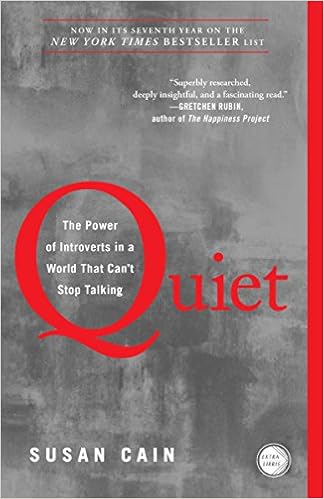
The Good Side of Quiet – By Anastasia Rogozinski
“They do not participate, therefore, they are not smart.” Imagine your teacher thinking this when giving you a grade. This may be an exaggeration, but many students may feel as though their teacher sees them this way.
Many classes grade participation. If some students perform poorly on assessments, a participation grade can give them a boost. However, students who perform well on assessments, yet refrain from participating, can watch their grade plummet. With a grade hovering over them, the pressure of engaging grows. For introverted students, sharing on-the-spot creates stress. The fast-paced nature of many discussions gives little to no time for formulating ideas. An article from Quiet Revolution states “The spontaneous nature of some discussions may be difficult for introverted learners who need time to process ideas before sharing” (Klein & Riordan 1). While the students who do participate do not always share the most developed ideas, they do not fear contributing. Quiet Revolution also explores reasons behind not participating. They write that in some cultures people are not “expect[ed] to challenge their teachers’ “ideas” or “ask questions” (Klein & Riordan 1). Being quiet does not necessarily mean lack of interest.
As an introvert, I believe participation should not be graded. I find it difficult to participate in class. Regardless of correctness, I feel uneasy communicating my ideas. In many classes discussions take place based on opinions. Again, many discussions happen fast. By the time I have an idea, the topic has changed completely. The pressure exists that you could say something obvious or repeat something. Your classmates could judge you which only adds to the anxiousness of participating. With more kids in the class, the experience becomes more nerve-wracking. Last year in the Humanities class the participation grade was worth 20% of the quarter grade. As if this were not already discouraging, the class contained 55 students. The sheer size was daunting enough, regardless of the pressure. After the grade appeared each quarter, I would tell myself that next quarter I would try to participate more. I even created a goal; raise my hand once a week. That did not happen. As the year went on I thought I would get used to size, but the fear persisted. The participation grade each quarter brought my grade down which did not help my other grades. The grade was not a reflection of what I had been learning and experiencing. I believe the explanation that introverts are not interested, they are just taking it all in is true. That is what I considered myself doing, taking everything in; the discussions, the comments, the subtle jokes. I absorbed the experience.
While it is understandable that teachers want students to engage, participation grades should not be worth as much or included at all. Today, the amount of group work continues to increase. Sharing ideas with groups is easier for me and other introverted students. If this was the counted, then a student’s grade would not suffer and the pressure of participating would not be so great.
Klein, Emily, and Meg Riordan. “Class Participation Penalizes Introverts.” Quiet Revolution, 29 Dec. 2015, www.quietrev.com/participation-penalizes-quiet-learners/.












